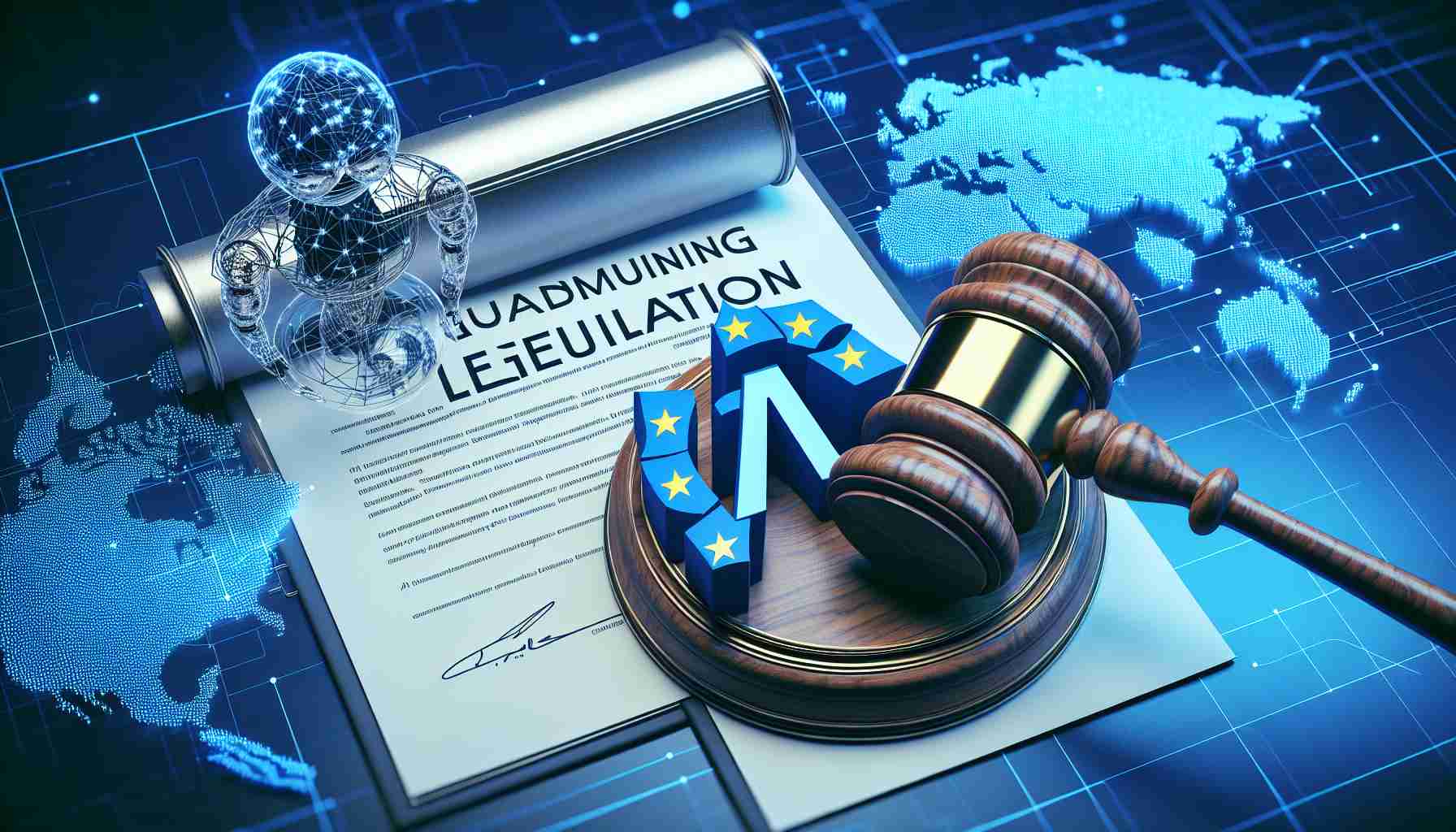In a significant development for the regulation of artificial intelligence (AI), the European Parliament has endorsed the EU’s proposed AI Act. This milestone vote paves the way for the introduction of comprehensive legislation that aims to address concerns and establish trust in AI technology. While consumers may not immediately notice a difference, the implementation of this act over a three-year period will ensure the careful vetting and safety of AI tools.
According to Guillaume Couneson, a partner at law firm Linklaters, the approval of the AI Act means that users will be able to trust the AI tools they utilize, similar to how banking app users trust the security measures implemented by their banks. This emphasis on trust and safety is crucial for the widespread adoption of AI technology.
Beyond the European Union, the impact of this legislation is expected to resonate globally. The EU has established itself as an influential tech regulator, as demonstrated by the effects of the General Data Protection Regulation (GDPR) on data management practices. The adoption of the AI Act is likely to shape the approach of other countries, provided that its effectiveness can be proven.
What is the AI Act’s Definition of AI?
While AI can be broadly defined as computer systems capable of human-like tasks, the AI Act offers a more detailed description. It defines the regulated AI technology as “machine-based systems designed to operate with varying levels of autonomy.” This definition encompasses tools like ChatGPT and recognizes their capacity for adaptive learning and the generation of outputs that influence both physical and virtual environments. Job application screening and chatbots are just a few examples of the AI tools covered by this definition.
However, it is important to note that the AI Act does exempt AI tools designed for military, defense, or national security purposes. This exemption has raised concerns among advocates for responsible AI use, who fear potential abuse by member states.
Addressing the Risks of AI
To mitigate the risks associated with AI, the AI Act prohibits certain systems. These include manipulative systems that cause harm, social scoring systems that classify individuals based on behavior or personality, predictive policing akin to the movie Minority Report, and intrusive systems that monitor emotions. It also restricts biometric categorization systems that infer sensitive information from biometric data and the compilation of facial recognition databases through unauthorized scraping.
Additionally, the legislation includes provisions for “high-risk” systems primarily used in critical infrastructure and essential sectors like education, healthcare, and banking. These systems require accuracy, risk assessments, human oversight, and usage logs. EU citizens also have the right to request explanations for decisions made by AI systems that impact them.
Regulating Generative AI and Deepfakes
The AI Act acknowledges generative AI systems that produce text, images, videos, or audio from simple prompts. It imposes a two-tiered approach for these systems. Model developers must comply with EU copyright law and provide detailed summaries of the content used for training. However, open-source models available to the public, like ChatGPT’s GPT-4, are exempt from this copyright requirement.
A more stringent tier of regulation applies to models with a “systemic risk” due to their advanced “intelligence.” This tier requires the reporting of serious incidents caused by these models and adversarial testing to evaluate their safeguards.
Deepfakes, the manipulated media that can deceive audiences, also fall under regulation. Those responsible for creating deepfakes must disclose their artificial origin. However, artistic, creative, or satirical works may be flagged without hindering their display or enjoyment. Publicly disseminated AI-generated text addressing matters of public interest must be labeled as such unless it has undergone human review or editorial control.
In conclusion, with the European Parliament’s endorsement of the AI Act, the EU has taken a groundbreaking step towards regulating AI technology. By addressing concerns, establishing trust, and implementing safeguards, this legislation sets a precedent that other countries will likely observe closely. The EU’s approach to AI regulation has the potential to shape the future of responsible AI adoption and usage.
FAQ on the EU’s Proposed AI Act:
1. What is the AI Act’s definition of AI?
The AI Act defines regulated AI technology as “machine-based systems designed to operate with varying levels of autonomy.” This includes AI tools like ChatGPT and recognizes their adaptive learning capabilities and influence on physical and virtual environments.
2. What is exempted from the AI Act’s regulations?
AI tools designed for military, defense, or national security purposes are exempted from the AI Act’s regulations. This exemption has raised concerns among advocates for responsible AI use.
3. What risks does the AI Act aim to address?
The AI Act prohibits manipulative systems that cause harm, social scoring systems, predictive policing, intrusive emotion-monitoring systems, and certain biometric categorization systems. It also includes provisions for high-risk systems used in critical infrastructure and essential sectors.
4. How does the AI Act regulate generative AI and deepfakes?
Generative AI systems that produce text, images, videos, or audio are regulated. Model developers must comply with EU copyright law and provide detailed training data summaries. Deepfakes must disclose their artificial origin, but artistic, creative, or satirical works may be flagged without hindrance.
5. What does the endorsement of the AI Act mean for the regulation of AI globally?
The EU’s endorsement of the AI Act establishes the EU as an influential tech regulator. Its effects are expected to resonate globally, shaping the approach of other countries if the effectiveness of the AI Act can be proven.
Key Terms/Jargon:
– AI: Artificial Intelligence refers to computer systems capable of human-like tasks.
– AI Act: Comprehensive legislation proposed by the EU to regulate AI technology.
– GDPR: General Data Protection Regulation, a regulation by the EU for data management practices.
– ChatGPT: An example of an AI tool covered by the AI Act, known for its text generation capabilities.
Related Links:
European Commission – Artificial Intelligence
The source of the article is from the blog regiozottegem.be

